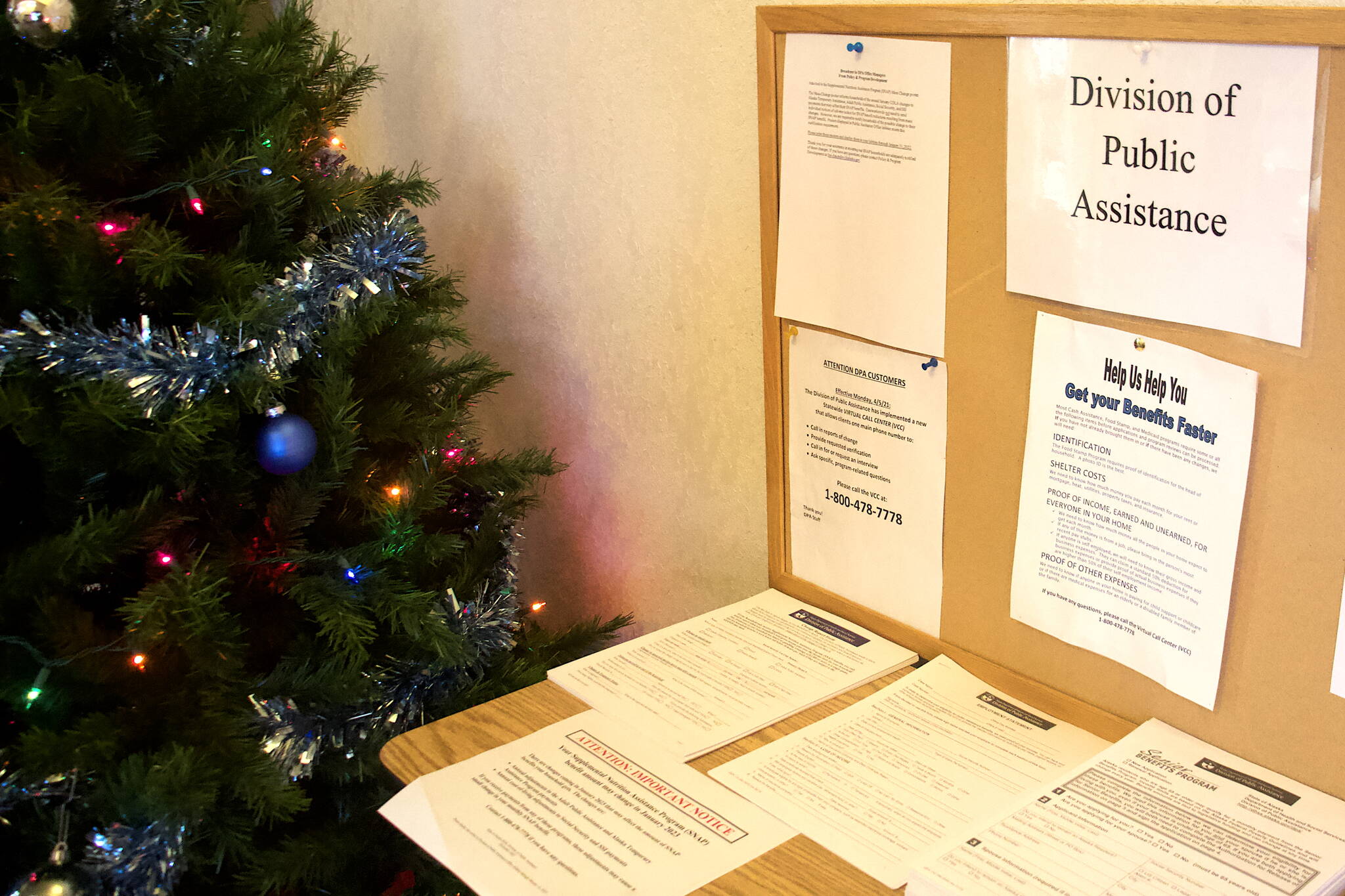A months-long backlog of food stamp applications from thousands of Alaska residents are expected to get help from additional employees during the next few weeks, but the director of the statewide program said Tuesday it is still likely to be months more before issues are resolved.
At least 8,000 households applying for Supplemental Nutrition Assistance Program benefits since September have faced delays of 90 to 120 days in processing, far exceeding the 30-day statutory requirement, due to an employee shortage and lingering issues from a cyberattack in May of 2021, according to a statement by the Alaska Division of Public Assistance.
“It’s not an easy fix or an easy thing to find solutions for,” said Shawnda O’Brien, the division’s director, in an interview.
The agency is still processing expedited applications for households claiming immediate need — with the requirements being less than $150 in cash and less than $100 in any other funds such as a bank account — within the mandatory seven calendar days, she said.
“We receive an average of about 45 per day,” O’Brien said, but added most of them are rejected because they don’t meet the expedited requirements.
Residents with pending applications said they are facing waits of several hours, non-responses when their inquires do reach the division, and an inability to pay for both food and other bills in interviews with KTOO, which first reported the backlog.
The division’s Juneau office was mostly empty of employees around midday Tuesday, with a lone applicant filling out paperwork in the waiting area. O’Brien said the office normally has about 30 employees, but many have been working remotely since the COVID-19 pandemic and all division staff generally handle tasks in priority order statewide regardless of their physical location.
There is an increase in the number of applicants visiting the Juneau office in person, which may prevent delays experienced on the phone when making inquiries although “it doesn’t help in the sense we’re able to resolve the situation,” she said.
The division is seeking to hire 45 temporary employees and fill 30 vacant permanent positions, with 33 temporary and 13 permanent staff signed up as of this month. O’Brien said they should be trained and ready to help applicants within a few weeks.
“For now it will help us answer the phones more quickly,” she said.
O’Brien, in a separate email sent Tuesday, stated “today the average call wait time is 40 minutes,” a decline from recent average durations.
A multitude of complications are contributing to the delay, according to the division’s statement:
— A cyber attack on the division’s computer systems in May of 2021 is continuing to cause problems with automation tasks, meaning much of that work must be done manually by employees.
— The end of the state’s public health emergency declaration in July of this year, combined with a high staff vacancy rate, resulted in an accumulating backlog. “Extra time was spent during the application and recertification process for the months of July-September 2022, because an interview was required for all SNAP applications and recertification, this extra process was previously not required during the pandemic,” the statement noted.
— While the federal government allowed states to seek waivers from the interview requirement beginning in October, the backlog still affected the estimated 8,000 people applying for benefits between September and now.
More than 80,000 Alaska households received SNAP benefits. The pending applicants are either from new households or those seeking to renew expiring benefits, which is required every six months.
“Alaskans can minimize the delays for their application process by submitting one application and please do not wait until the end of the month to do so,” the division’s statement notes. “If your post office is closed or experiencing delays, go to your fee agent and they can help submit your application via email or fax…If you are experiencing food insecurities, please call Alaska 2-1-1 to find other community resources that can help with a household’s full range of needs.”
Qualified applicants will receive retroactive benefits for the backlogged period, according to the division.
Juneau’s food banks have been reporting high demand and low supplies for many months, although officials at two largest providers said this week they can’t definitively link the shortage to the unavailability of SNAP benefits.
Chris Schapp, manager of the Southeast Alaska Food Bank, said 100 to 125 additional people are visiting in recent weeks, but noted the timing coincides with the closing of Helping Hands Food Bank at the end of November after 39 years of operation. Karen Perkins, pastor at Resurrection Lutheran Church, said she isn’t hearing residents at the food pantry discuss problems with SNAP benefits, although she is seeing an increasing consumption of food at the church’s warming shelter and she’s encountering difficulties finding discount items in stores because there’s more shoppers seeking them out.
“It’s sort of like everyone moved down an economic tier,” she said.
Rick Wilson, manager of Foodland IGA, said Tuesday while specific SNAP spending figures at the store weren’t immediately available, cashiers say there hasn’t been a noticeable change in comments and behaviors by customers making such purchases.
• Contact reporter Mark Sabbatini at mark.sabbatini@juneauempire.com

